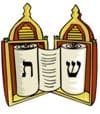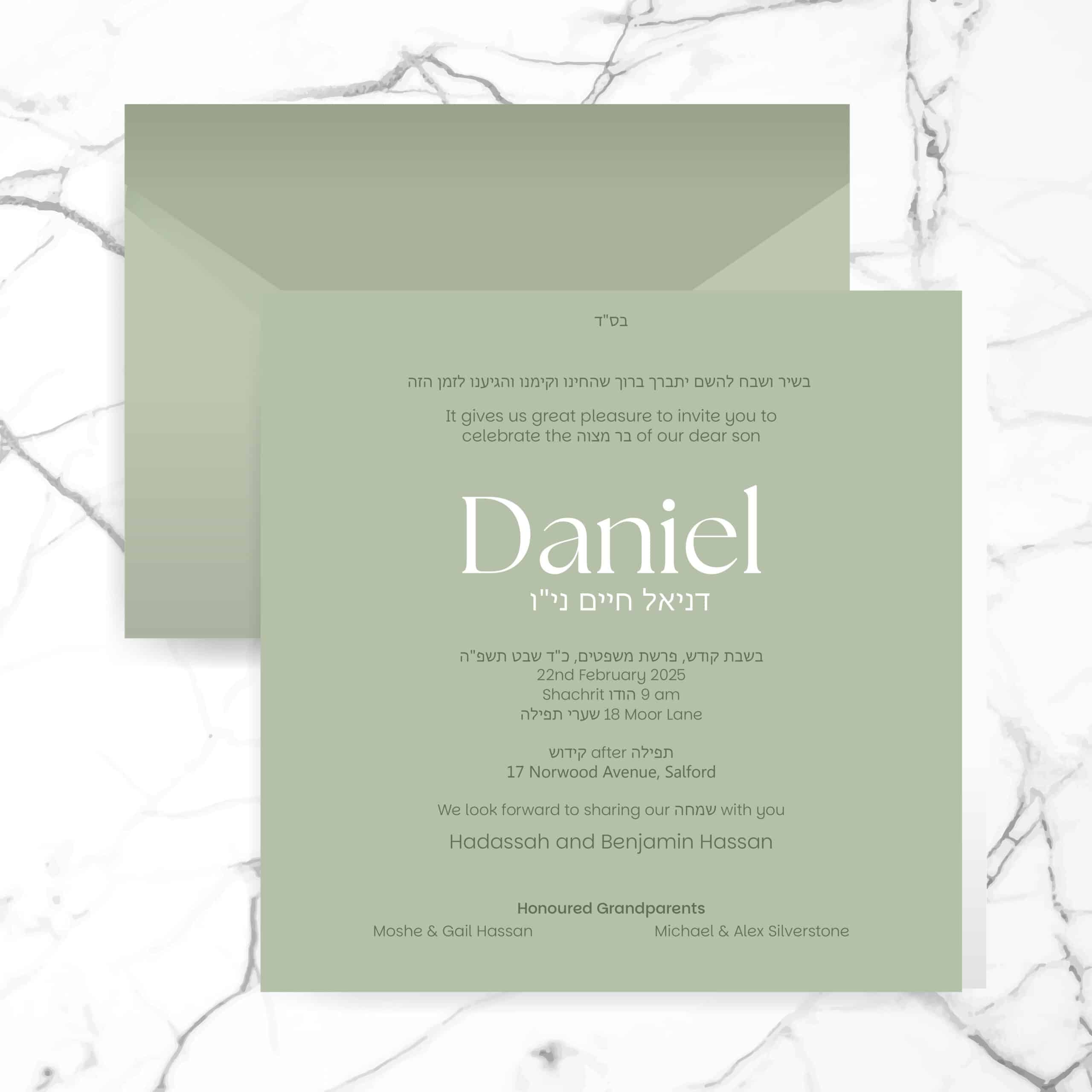
ק׳ ק׳ שׁערי תפילה

*****

שבת מברכים
is שבת מברכים
****
Bar Mitzvah invitation

Moorlanenews
******

🌃
LAST AVOT UBANIM
of the Winter Season
1hr 15 mins after Motzae Shabbat
📚 THIS WEEK 7:35 pm 📚
*********

🗓️
לוח זמני תפילה לחורף תשפ״ה
Winter Timetable 5785 – 2024/25
מוצאי שבת | ערבית | שקיעה | מנחה שבת | סוף זמן קריאת שמע | הדלקת נרות | מנחה וקבלת שבת | תאריך | שבת פרשת |
Shabbat Ends | Arbit | Sunset | Minha | Shema before | Candle Lighting | Minha & Kabbalat Shabbat | Date | Parasha |
PM | PM | PM | PM | AM | PM | PM |
|
|
6:23 | 6:19 | 5:32 | 4:55 | 9:47 | 5:16 | 5:16 | 21/22 Feb | משפטים (ש''מ) |
שבת
קרבנות
8:45 am
הודו
9:00 am
****

🌃
LAST AVOT UBANIM
of the Winter Season
1hr 15 mins after Motzae Shabbat
📚 THIS WEEK 7:35 pm 📚
*****

The Jewish People receive a series of laws concerning social justice. Topics include: Proper treatment of Jewish servants; a husband's obligations to his wife; penalties for hitting people and for cursing parents, judges, and leaders; financial responsibilities for damaging people or their property, either by oneself or by one's animate or inanimate property, or by pitfalls that one created; payments for theft; not returning an object that one accepted responsibility to guard; the right to self-defense of a person being robbed.
Other topics include: Prohibitions against seduction; witchcraft, bestiality and sacrifices to idols. The Torah warns us to treat the convert, widow and orphan with dignity, and to avoid lying. Usury is forbidden and the rights over collateral are limited. Payment of obligations to the Temple should not be delayed, and the Jewish People must be Holy, even concerning food. The Torah teaches the proper conduct for judges in court proceedings. The commandments of Shabbat and the Sabbatical year are outlined. Three times a year — for Pesach, Shavuot and Succot — we are to come to the Temple. The Torah concludes this listing of laws with a law of kashrut to not cook or mix meat and milk.
Ohr Somayach Institutions www.ohr.edu

מרק עם שקדי מרק
שאלה: מהי ברכת מרק עם קרוטונים או שקדי מרק או אטריות?
תשובה: בימים האחרונים למדנו את עיקרי הדינים של “עיקר וטפל” בברכות. ובכלל הדברים למדנו, שמאכל שמעורב בו קמח, ואפילו בכמות קטנה, והקמח בא לתת טעם במאכל, הרי תמיד ברכתו תהיה “בורא מיני מזונות”. ולכן על “ופלים” וכדומה, מברכים בורא מיני מזונות, אף על פי שרוב המאכל מורכב מדברים שברכתם “שהכל נהיה בדברו”.
ולכן כשנבוא לדון לגבי מרק שיש בו שקדי אטריות וכדומה, הרי ברכת האטריות היא “בורא מיני מזונות”, ולכן נראה לכאורה שיש לברך על כל המרק ברכת “בורא מיני מזונות”.
אולם באמת שרבותינו הראשונים כבר נחלקו ביניהם בענין זה. שיש אומרים שמאחר וכאשר שותים את המרק לבדו, אין כוונה בכלל לאכול מהאטריות, הרי זה דומה לשני מאכלים נפרדים לגמרי, כמו בשר ועל ידו אורז, שמברכים על כל אחד ואחד את הברכה הראוייה לו. ומחלוקת זו נוגעת לעוד מחלוקת אחרת, באופן שקשה מאד להסביר במסגרת זו את כל הדברים.
ולמעשה כתב מרן רבינו עובדיה יוסף זצ”ל (חזון עובדיה ברכות עמוד קסו), שאם מדובר במרק שיש בו כמות חשובה של אטריות, אף על פי שהמרק הוא הרוב, יש לברך עליו “בורא מיני מזונות”. ובברכה זו נפטר גם המרק עצמו. וכן הדין לגבי קרוטונים או שקדי מרק, שאם שמים הרבה מהם במרק, (כמו שלפעמים ילדים מבקשים), יש לברך עליו “בורא מיני מזונות” (הלכה ברורה סימן רה). אבל אם מדובר במרק שיש בו מעט אטריות, ובפרט הדבר מצוי לגבי שקדי מרק וקרוטונים, ששמים אותם מלמעלה באופן שאינו מתערב עם כל המרק, אז יש לברך גם על המרק ברכת “שהכל נהיה בדברו”. ונכון לברך תחילה על משקה אחר “שהכל נהיה בדברו”, ואחר כך לברך על האטריות או ה”שקדי מרק” – “מזונות”, ובזה לצאת מכל ספק. (וראה מה שכתב בזה בספר ילקוט יוסף החדש בהל' ברכות).
וכן אם יש ספק אם מדובר ב”כמות חשובה” של אטריות או לא, יוכל לברך תחילה “שהכל” על דבר אחר, ואחר כך יברך “מזונות” על האטריות.
A Soup Containing Croutons
Question: What is the appropriate blessing on a soup which contains croutons, madlen (soup nuts), or noodles?
Answer: Throughout the past few days, we have discussed the basic laws of primary and secondary foods regarding blessings. We have learned that a food that has flour mixed into/with it, even if it is only a small amount of flour, will require the “Boreh Minei Mezonot” blessing as long as the flour is there to add flavor to the food. Thus, the blessing on wafers and similar items is “Mezonot” although a majority of it is comprised of “Shehakol Nihya Bidvaro” ingredients.
When analyzing the appropriate blessing on a soup containing croutons, noodles, and the like, it seems that since the blessing on the croutons or noodles is “Mezonot”, the appropriate blessing on the soup as a whole should therefore be “Boreh Minei Mezonot.”
Nevertheless, this matter is subject to a disagreement among the Rishonim, for some disagree with the above premise since when one drinks the soup alone, one has no intention of eating the noodles, this therefore resembles two completely separate foods, such as rice alongside meat, in which case one recites the appropriate blessing on each food. This dispute is contingent upon another rabbinic dispute which makes it extremely difficult to explain in the scope of this Halacha.
Halachically speaking, Maran Rabbeinu Ovadia Yosef zt”l writes (in his Chazon Ovadia-Berachot, page 166) that if there is a significant amount of noodles, even if most of the dish is comprised of soup, one should recite the “Boreh Minei Mezonot” blessing which will in turn exempt the soup as well. The same applies to croutons and soup nuts in that if one places a copious amount of these items into the soup (as children will sometimes request), the correct blessing on the soup is “Boreh Minei Mezonot” (see Halacha Berura, Chapter 205). However, if there is only a minimal amount of noodles in the soup, such as is the case regarding croutons or soup nuts when they are sparsely sprinkled on the top of the soup but are not mixed into the entire dish, the soup will then require an additional blessing of “Shehakol Nihya Bidvaro.” In such a case, it is preferable to first recite the “Shehakol” blessing on another beverage and then to recite the “Boreh Minei Mezonot” blessing on the noodles or croutons, in which case, one will avoid all doubt. (See recently published Yalkut Yosef-Hilchot Berachot for a discussion of this topic.)
Similarly, if one is doubtful regarding whether or not the amount of noodles in the soup is considered “significant” or not, one may first recite the “Shehakol” blessing on another beverage and then recite the “Mezonot” blessing on the noodles.